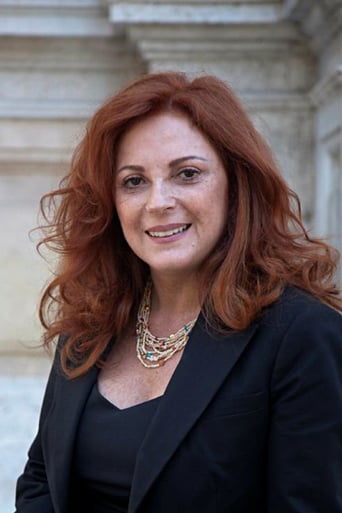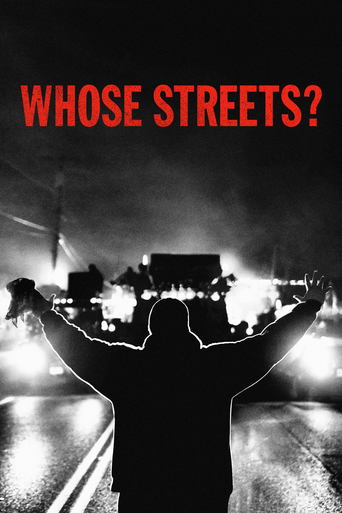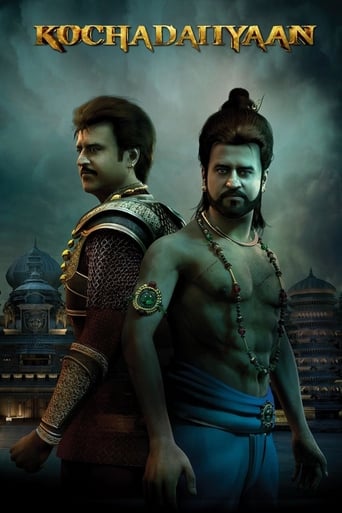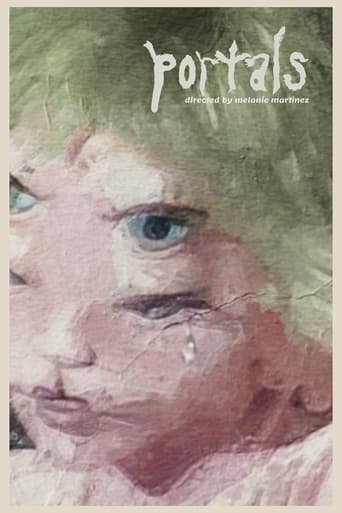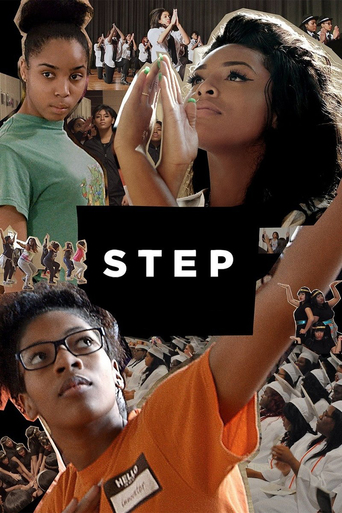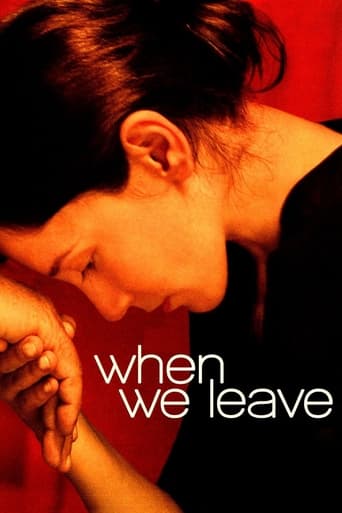
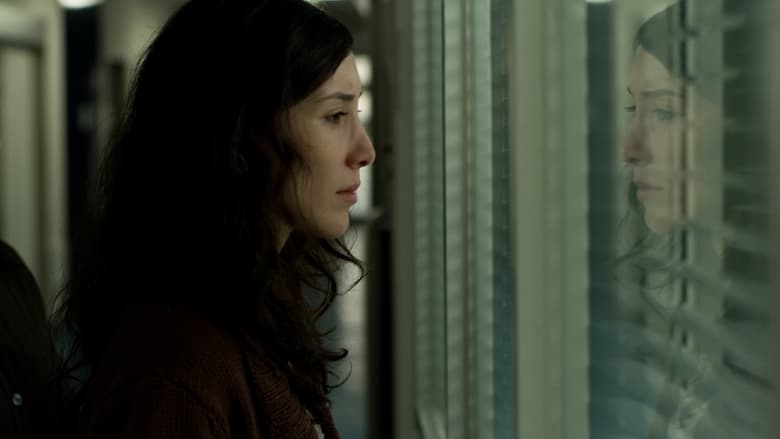
When We Leave (2010)
Umay is a young woman of Turkish descent, fighting for an independent and self-determined life in Germany against the resistance of her family. Her struggle initiates a dynamic, which results in a life-threatening situation.
Watch Trailer
Cast


Similar titles
Reviews
Nice effects though.
The performances transcend the film's tropes, grounding it in characters that feel more complete than this subgenre often produces.
Tells a fascinating and unsettling true story, and does so well, without pretending to have all the answers.
This movie tries so hard to be funny, yet it falls flat every time. Just another example of recycled ideas repackaged with women in an attempt to appeal to a certain audience.
Die Fremde, or When we Leave is a whole lot of western stereotyping of immigrants living in Europe. In this case, a married Turkish young woman with her son separates from her husband who beats and rapes her frequently. This brings to her life a whole lot of other problems, with her family and specially with her father (and mother), who greatly opposes to what he sees as wrong in a traditional society that treats women as a possession of men. It starts with the scenes of beating an raping that will be the main issues during the film, it follows with her struggle to start her own life under the opposition of her family, her father and the older brother being taking the leading roles in subjugating her.I really wouldn't recommend this film for its mostly eurocentric views of immigrants living in Europe.
This film is very realistic. Its detailed depiction of one Turkish family living in Berlin casts overtones for a greater problem of European multiculturalism. But forget the wider scope of those implications for now. The film is very focused on Turkish culture within Germany and one of its great weaknesses: what it considers to be saving the "honor" of the family. The older daughter in the film has left her violent and abusive husband in Turkey and moved back to her family in Germany. Her parents immediately side with her husband, and they repeatedly ask the daughter to return to him. But the daughter has sacrificed much to get away, and will not return. After an attempt to kidnap her son and return him to the father fails, she moves out...and moves again...and moves again as problems mount. Her younger brother and sister, although initially supportive of her, slowly begin to turn against her as the shame of her living independently with child causes the Turkish community to isolate the family. This ultimately leads to a final decision by the men in the family, with tragic results. The family is Muslim, although Islam is not portrayed as the reason why the family is shamed by the older daughter. In the culture, it is easy for an independent woman to bring shame to the family, especially if she leaves her husband. At no time do the parents ever seriously consider the perspective of their daughter. It is quite clear, she has to maintain the family honor at all costs; which in this case means returning to her husband. As the daughter continues to make unwise choices by maintaining contact with her family because she loves them, the unwritten codes of this "honor" system will drive the family into greater acts of cruelty. This film can make you very angry indeed at the injustice to women done by patriarch based communal cultures. The "honor" that they cling to is so twisted. It is based on a superficial sense of righteousness that has little basis in truth. It is more concerned with appearances than justice. More concerned with blind obedience than righteousness. And that concept is promoted in Islam, though not exclusively. This film should be mandatory viewing for any woman in similar straits as the main character in the film who has needed to separate from the family for safety. The Germans have provided good resources for such women, but they are advised, "For now, avoid contact with your family." One of this beautifully done film's main points is: Once you leave or are forced to leave the family, it may be for good. You cannot expect your family to sympathize with you, support you, or even accept you as family. There is a good chance they WILL turn against you if the community slanders the family. And a woman who leaves her abusive husband, lives alone, calls the police for safety, or takes any action to safeguard her life and livelihood may very well be thought of as nothing more than a "whore" by the rest of the German Turkish community. Contact your family again at risk to your life! I would wish that Turkish men (those who are perpetrators, that is) who see this would also feel ashamed for some of their sexist standards, but I don't know if they would...The film is very moving and well done. The actors all fulfill their roles, particularly the leading lady. The eye communication of the cast is extremely profound, leaving you wondering about all of the unspoken thoughts stewing in their heads. The writing allows sympathy with all of the characters while still clearly pointing out who is right and who is wrong. You see they all have deep passions about righteousness. It's just that some are righteous and others are not. It is a simple story that casts deep shadows on complexities of cultural clashes. This is not a film that will break grounds in cinematography, but it is a brave film and urgent as the Muslim (both immigrant and native) population rises in Europe. Hopefully this will start a trend that will cause the Turkish culture to think about what true honoring of the family really is.
Feo Aladag's debut feature comes to you with such a powerful presence that it is unlikely anyone will falter under her silver screen plea of sincerity and truth about violence against women and their rights under religious restraints. This narrative drama is void of plot clichés and feels a lot like a documentary, convincing of an ill-fated woman's horrible chapter captured on film.Austrian actress Aladag's first feature film is powerful and overwhelming for the film community, depicting a Muslim woman's struggle for freedom and human rights in the light of religious complications. It is made with such rawness that is almost too convincing as a drama genre film, feeling more like a documentary on the big screen. There is almost no single scene in it that makes you go "Hmm, that is scripted" even though it is, by Aladag herself.We are looking at superb directing and writing here by a first time feature film-maker, which is a wonderful surprise that leaves us craving for more of her works to come. Perhaps it is her passion to promote anti-violence against women as well as women's rights, allowing her to be devoted towards this film as a mass media tool of propaganda for a good cause.I for one, am very convinced and inspired by her film.Sibel Kekilli (previously earning accolades for "Head-On") deserves (Oscar nomination worthy) recognition for her portrayal of Umay as she manages her emotions so well to evoke strong feelings within the audience. I felt so much for Umay and her son Cem, wondering how can such tragedy befall upon them and at some points experiencing this passive urge to extend my helping hand towards them.No film has ever made me feel this way.Aladag illustrates the modern European society's concerns over integrating Muslim immigrants into the EU community, where the line to draw between intercultural tolerance and interference is vaguely debatable. Just how much can one's deprival of basic human rights be justified by any religion, the very one that supposedly exists to give us hope, security, and moral guidance?Pressurised by how the conservative Muslim community judges their family based upon Umay's individual revolt against norms, her family becomes very uptight and volatile regarding the new found woe and remains adamant against her doings. There is very little act of love revealed under their furious demeanour throughout the film, but I do believe that Umay does hold a place in their hearts no matter how small it is becoming. Her religious family has perhaps overtly regarded faith as the utmost authority that cannot be defied, one that even transcends blood ties.Interestingly, her two brothers played an integral part in conveying the sentiments of the young Muslim generation. Both brothers did not know what they should do, except by faith and teachings since young to always follow the intentions of their parents. None of them tried to hold rational family discussions to speak on this, where everything is decided by the head of the family. With their parents heavily stuck in the mud of traditional values and culture intolerance, the brothers eventually caved in and followed suit to resist their sister.Umay and Cem are being ill-treated by her abusive husband (coerced sexual activities and violence), leaves him and runs home to her family who regards her act as a shameful disgrace. Umay's father mentioned that upon marriage, she belongs to her husband. Does that mean that she has to suffer silently even when her husband tears off a limb or two from her or even end her life? It is also cruelly brought up that when her family has to choose between the community and Umay, they will never choose her.These are questions that one has to ask oneself, regardless of religion and cultural background.In 2005, 23 year-old Hatun Sürücü was shot to death by her youngest brother, at the instruction of his family, at a bus stop near her residence. This was classified as one of the shocking "Honour killings" trend in Germany, where the father has actually ordered for the murder of his own daughter. Hatun was married against her will to her cousin for eight years and decided to leave him with her then five year-old son. Hatun was pursuing an education and an internship as an electrician after she left her husband.This film follows with reference to the 2005 tragedy, but the ending (though similarly unfortunate in nature) is not the one as mentioned above. So no spoilers pertaining to the film's ending.A simple issue of a woman's ill-treatment by her abusive husband and her decision to leave her misery behind for a better life that everyone deserves. There is no religious implications here. It is not up to God to decide who should be ill-treated or deprived of human rights, it is up to us to stop violence and unjust treatment as fellow human beings. Sadly, although the misfortune of Umay (and Hatun) was derivative of religious intolerance, the entire affair has nothing to do with religion.Umay has removed her head scarf in the film ever since her family disapproves of her intentions. This may be deemed as her disregard of and revolt against religion, but I feel that it is more of a revolt against unjustified suppression of her personal freedom and rights. Her removal of her scarf may simply imply that it has nothing to do with religion.Just as what Umay's superior has said to her father during an unannounced home visit,"Leave Him out of it, God has nothing to do with this".
Austrian actress Feo Aladag's directorial debut touches upon the concept of "namus" which has been treated many times before. Namus,which is roughly translated as "honor" is a female-bound ethical category in patriarchal societies. It is ostensibly a part of the traditionalist Muslim societies but the concept "namus" actually predates Islam and the Judeo-Christian religion. Regarded as the perfect form of female appropriateness today,namus in time lost its connection with religion and became an expression of hidebound traditionality.What makes this concept a popular subject for the cinema makers is the fact that the very concept does not set any rules for men in uber-conservative societies.In such a society males are supposed to control the women in their families. The fact that men are unaccountable for their actions while women should act perfectly along the line of appropriateness shows that "namus" came to be social mores that has not much to do with religion. In the movie Sibelli Kekilli plays a battered housewife who has been continuously abused by her husband. When she can't take it anymore she decides to go back to her family in Germany. Her family gives her a chilly welcome when they realize she is planning to leave her husband. Presumably from a generation of Gastarbeiter, the family is utterly conservative and a daughter's coming back to family with her kid and ending her marriage is unthinkable for them no matter how violent her husband would be. No matter how many times it has been treated before, the subject is a humanitarian one.It is not difficult to denounce the tartuffery of pious morality but you need to get credits for that. Die Fremde does not exactly offer a thought-provoking portrait of a damsel in distress.It feels like shouting at your face and telling you "I have thought of everything for you." Umay pursues an effectively independent way for herself and her son. She leaves her husband, she even leaves her family when she realizes that they will take her son from her. What does she do then? In spite of the warnings of foster home authorities, she continues to see her family. Though she gets physically attacked by her brother, she goes to her sister's wedding. Is that the way a girl who wants be independent should act? Why should a girl who has found a -sweet,caring boyfriend who wants be a father for her kid- be a pathetic person? Feo Aladag criticizes the stubbornly prejudiced, narrow-minded and inflexible mores of this society but she just indulges in incoherences. When Umay's mother Halime (Derya Alabora) hears that her other daughter Rana (Almila Bagriacik) is pregnant from her boyfriend all she says is "We're ruined." and the father just sighs when her wife says "they must get married". In a family like the one in the movie, Rana is supposed to be killed because of having blemished family's honor. What does the father do? The father chooses to pay the boy's father to get a definite marriage.Instead the family decides to kill the other daughter who can legally get a divorce.Let alone the fact the the characters do not act like a Turk (when the conversation turns into Turkish the characters do not sound as natural as they sound in Turkish.No Turkish-Muslim watches his son's imitative praying instead of following the imam during the salat in the mosque)they do not really give the reactions you expect from a traditionalist family. Sibel Kekilli's acting is superb but the story remains unconvincing,slipping too easily into melodrama and a series of incoherent scenes.




